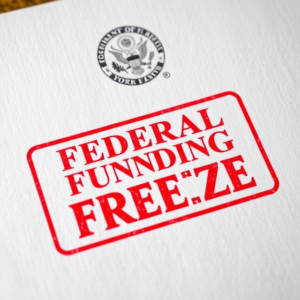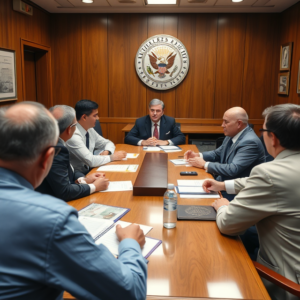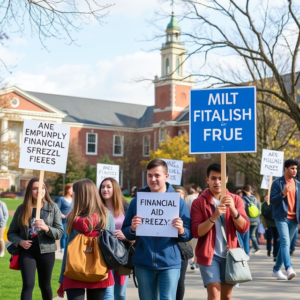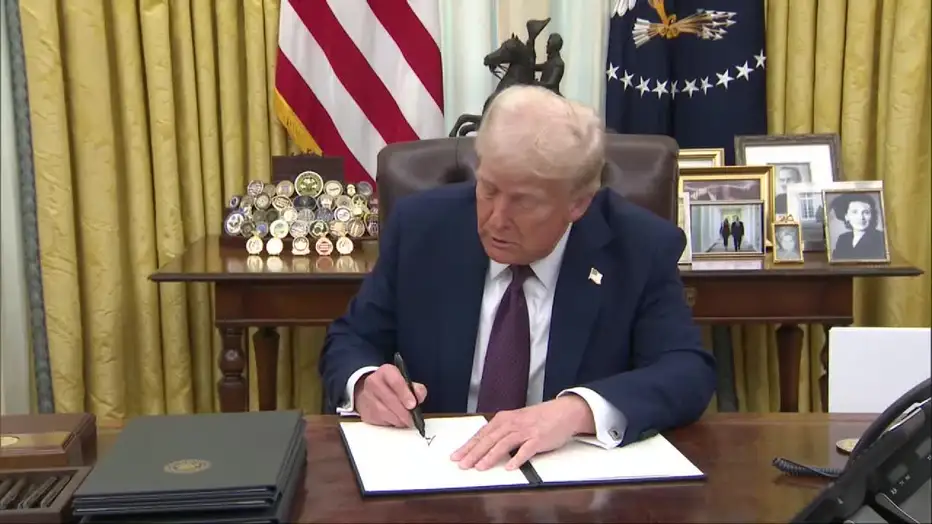In January 2025, the Trump administration initiated a federal funding freeze, halting the disbursement of federal grants and loans across various sectors. This move has led to significant legal challenges and raised concerns about its potential impacts on numerous programs and services.

Overview of the Federal Funding Freeze
The Office of Management and Budget (OMB), under Acting Director Matthew Vaeth, issued a memorandum directing all federal agencies to pause the obligation or disbursement of federal financial assistance. This directive aimed to align federal spending with the administration’s priorities, particularly concerning programs related to diversity, equity, and inclusion. Notably, the freeze excluded Social Security and Medicare but left ambiguity regarding other programs like Medicaid.

Legal Challenges and Judicial Response
The funding freeze prompted immediate legal challenges from various groups. Nonprofit organizations and public health groups, including the National Council of Nonprofits and the American Public Health Association, filed a lawsuit seeking an emergency order to block the freeze. They argued that the halt would cause disarray and potentially devastating consequences for community programs, food and safety assistance, and lifesaving research.

Additionally, a coalition of Democratic state attorneys general, led by New York’s Letitia James, announced plans to sue the administration over the directive. They contended that the freeze violated federal law by impeding the disbursement of funds appropriated by Congress and targeted recipients based on their rights to freedom of speech and association.
In response to these challenges, Federal Judge Loren AliKhan temporarily blocked the administration’s plan to freeze federal aid programs. The judge’s decision underscored the potential risks and confusion arising from the freeze and mandated that the government present its arguments before a scheduled hearing.
Potential Impacts on Various Sectors
The federal funding freeze has significant implications across multiple sectors:
- Nonprofit Organizations: Many nonprofits rely heavily on federal grants to provide essential services. A prolonged funding halt could jeopardize their operations, affecting programs related to housing, education, and social services.

- Public Health Initiatives: Public health programs, especially those addressing critical issues like disease prevention and health education, depend on federal funding. The freeze could disrupt ongoing projects and delay the implementation of new health initiatives.

- Educational Institutions: Universities and research institutions often receive federal grants for research and development. The funding pause threatens to stall scientific research, impede innovation, and affect scholarships and financial aid for students.

- Small Businesses: Federal loans and grants support small businesses, particularly in underserved communities. The freeze could limit access to capital, hindering business growth and economic development.

Conclusion
The Trump administration’s federal funding freeze has sparked legal battles and raised concerns about its far-reaching effects on various sectors. As the situation evolves, stakeholders are closely monitoring legal proceedings and advocating for the resumption of essential funding to mitigate potential disruptions to critical programs and services.




Can you be more specific about the content of your article? After reading it, I still have some doubts. Hope you can help me.
Thanks for sharing. I read many of your blog posts, cool, your blog is very good.
Thanks for sharing. I read many of your blog posts, cool, your blog is very good.
Thanks for sharing. I read many of your blog posts, cool, your blog is very good.
Can you be more specific about the content of your article? After reading it, I still have some doubts. Hope you can help me.
Can you be more specific about the content of your article? After reading it, I still have some doubts. Hope you can help me.
Can you be more specific about the content of your article? After reading it, I still have some doubts. Hope you can help me. “Ucretsiz hesap olusturun
Thank you for your sharing. I am worried that I lack creative ideas. It is your article that makes me full of hope. Thank you. But, I have a question, can you help me?
Your point of view caught my eye and was very interesting. Thanks. I have a question for you.
G365 88vin thật sự làm mình ấn tượng với giao diện thân thiện! Dễ dàng theo dõi các trận đấu. Nhấn vào g365 88vin để khám phá nhé!
Your point of view caught my eye and was very interesting. Thanks. I have a question for you.